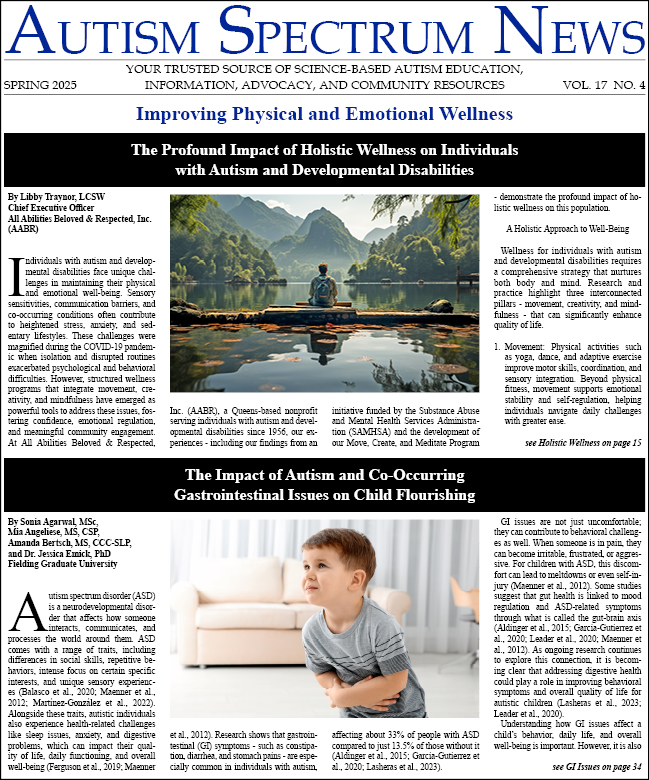-
The Silent Roadblock: Understanding the Ripple Effects of Feeding Difficulties on the Spectrum
While it’s widely documented that autism spectrum disorder (ASD) affects social interaction, communication, and behavior, there is a less spotlighted, yet pivotal, piece to these neurodivergent children: feeding difficulties. It’s estimated that up to 80% of autistic children have some form of...
-
Addressing Sensory Behaviors Through the Lens of an Occupational Therapist and a Behavior Analyst
Autism Spectrum Disorder (ASD) is a prevalent developmental and neurological disability that affects one in 36 children (CDC, 2023a). Individuals with ASD may have significant impairments in social communication and interaction, restricted or repetitive behaviors or interests, sensory features, and...
-
Cruising Tips for a Fun Autism Friendly Family Vacation
Do you wish you could go on a family vacation but think it’s too hard to manage with a child on the autism spectrum? With proper planning, a cruise can be a great way to combine fun and predictability for the perfect autism friendly family vacation. As a mom of children on the spectrum,...
-
Supporting Students’ Self-Regulation Needs: An Occupational Therapy Perspective
Self-Regulation is an individual’s ability to process and manage behavioral and emotional reactions to what is happening in their immediate environment. Throughout the day, a child’s nervous system is constantly attempting to process the sensory components of opportunities presented to them....
-
Designing a Sensory-Friendly Workplace for Autistic Adults
Autism is a lifelong condition, yet there is a noticeable lack of research on adults on the autism spectrum (Fairbank, 2023). Despite limited studies, challenges are emerging, one being a lack of sensory-friendly workplaces (Pryke-Hobbes et al., 2023). While the struggles of entering the workforce...
-
Setting Students Up for Success: Balancing Sensory Needs in the Classroom
Sensory considerations play a key role in developing a classroom environment conducive to learning. When classrooms are arranged with sensory needs in mind, teachers will often see increased levels of social participation and task engagement. Some students face challenges finding their voice in a...
-
Inclusive Housing: How Sensory-Friendly Features Can Help Address a Growing Need
Home should be a place where you can relax, feel safe, unwind from the day, and feel like it is your space. However, not everyone has that option. To illustrate, in our work of supporting inclusive housing for autistic adults for over 16 years at Madison House Autism Foundation, we have found that...
-
Advocating for Sensory-Inclusive Education: IEPs, Classrooms, and Schools
There are many lists and suggestions for sensory-inclusive education for autistic students. Gaining a sense of your student’s unique sensory profile – what causes distress or helps them stay regulated – is important. They may be impacted differently at school than at home. How can a caregiver...
-
The Regulating Benefit of Rituals
The ball boy hands him the tennis ball. He drops it to the ground twice, his torso bent over and neck extended, looking at his opponent. He swipes his face swiftly, touching his right cheek, nose, left cheek, and back to nose. He moves his water bottle just outside the boundary line. Wipes the...
-
Five Comfort Tools to Empower Your Driving
When driving a vehicle, sensory issues are important considerations for autistic people. Driving uses almost every sense in the body, like sight, smell, and sound, and all these senses are processed simultaneously, every time you get behind the wheel of a car. If you’re not able to process...




